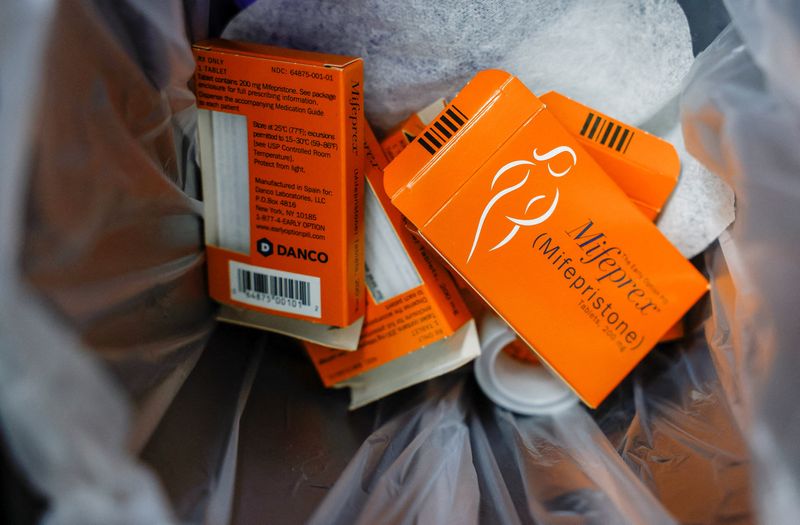By Brendan Pierson
(Reuters) - A federal judge in Denver on Friday rejected a Catholic medical center's bid to block Colorado from banning an unproven treatment meant to reverse the effects of a medication abortion drug.
U.S. District Judge Daniel Domenico said there was no need to block the first-of-its-kind ban because the state has said it will not enforce it for now, meaning that the center, Bella Health and Wellness, is not under any immediate threat. He did not address the merits of the case.
"Our clients are glad they can continue caring for women who ask for help after taking the first abortion pill," Rebekah Ricketts, a lawyer with the conservative legal group Becket Fund for Religious Liberty representing Bella, said in an email.
Medication abortion begins with the drug mifepristone, which blocks action of the hormone progesterone, crucial for sustaining pregnancy, and is completed with a second drug, misoprostol. Proponents of medication abortion reversal say that if a woman changes her mind after taking mifepristone but before taking misoprostol, the pregnancy can be continued by administering a high dose of progesterone.
There are no large controlled studies of the treatment, and the American College of Obstetricians and Gynecologists has said that its safety and efficacy are unsupported.
Colorado Governor Jared Polis, a Democrat, signed a law on April 14 that would subject health care practitioners who perform medication abortion reversal to discipline unless the state's medical licensing boards determine that treatment is a "generally accepted standard of practice." They also could potentially lose their licenses
The law gives the boards until October to make that determination and issue formal rules, and the state has said it will not enforce the ban until that rulemaking process is complete.
Bella filed its lawsuit the same day the law was signed. It alleges that the law violates the U.S. Constitution's guarantee of free exercise of religion, free speech and equal protection.

Mifepristone is the subject of a heated legal battle as anti-abortion groups seek to pull it from the market. A maker of mifepristone is challenging state restrictions on it in West Virginia and a group of doctors is challenging restrictions in North Carolina.
Republican state legislatures have also taken steps to restrict access to the drug, while Democratic legislatures have sought to protect it.